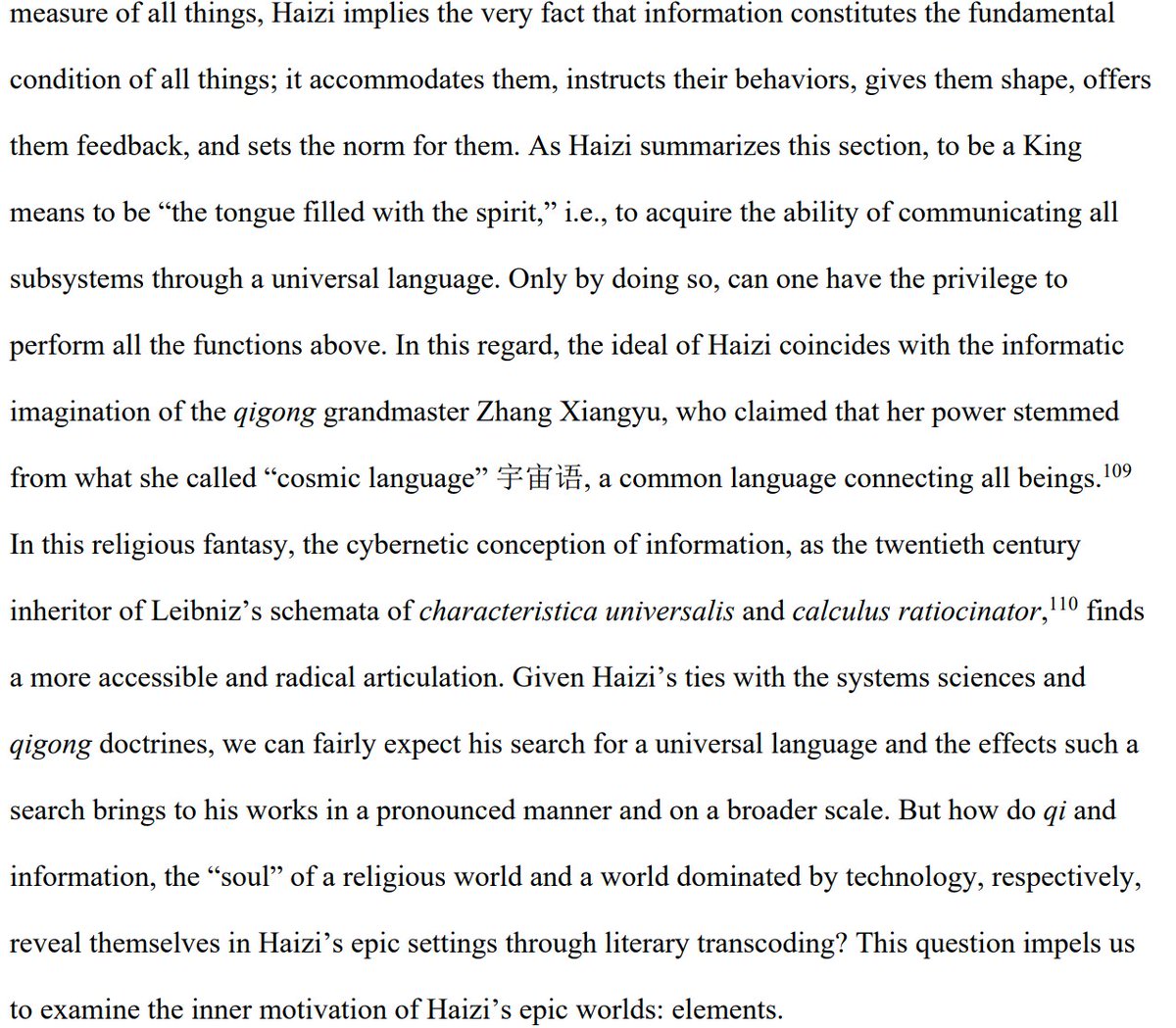The shogunate recognized that there were people and places that they could not govern. They turned to Danzaemon. That's not one person but a name successively taken up by the dozen or so men that ran a parallel government and economy in Edo until 1871. 
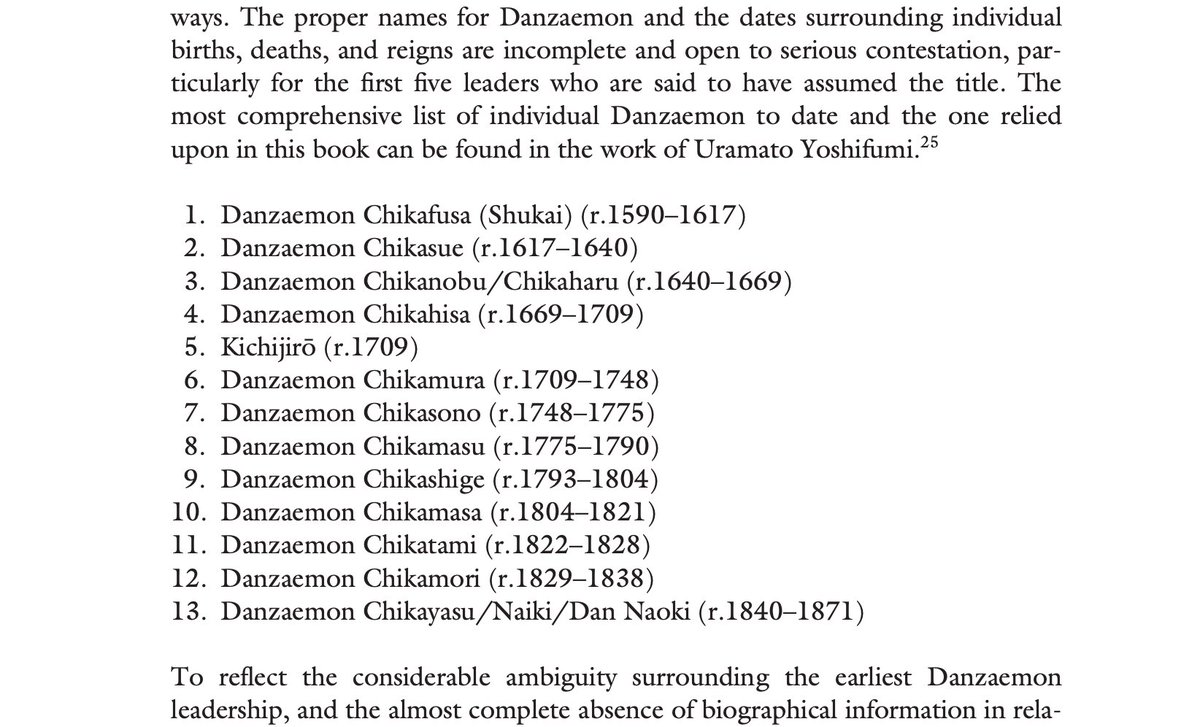
The shogunate needed to maintain order, including over people—beggars and butchers, mule skinners and monkey trainers, hangmen and cobblers—that were separate from the classes of samurai and commoners. They began to be officially and unofficially categorized and organized.
People that threatened stability (beggars, lepers) and those polluted by their trade (leatherworkers, butchers), were formed into guilds. People like Danzaemon became their leaders. (Caste in Early Modern Japan: Danzaemon and the Edo Outcaste Order, Amos.) 





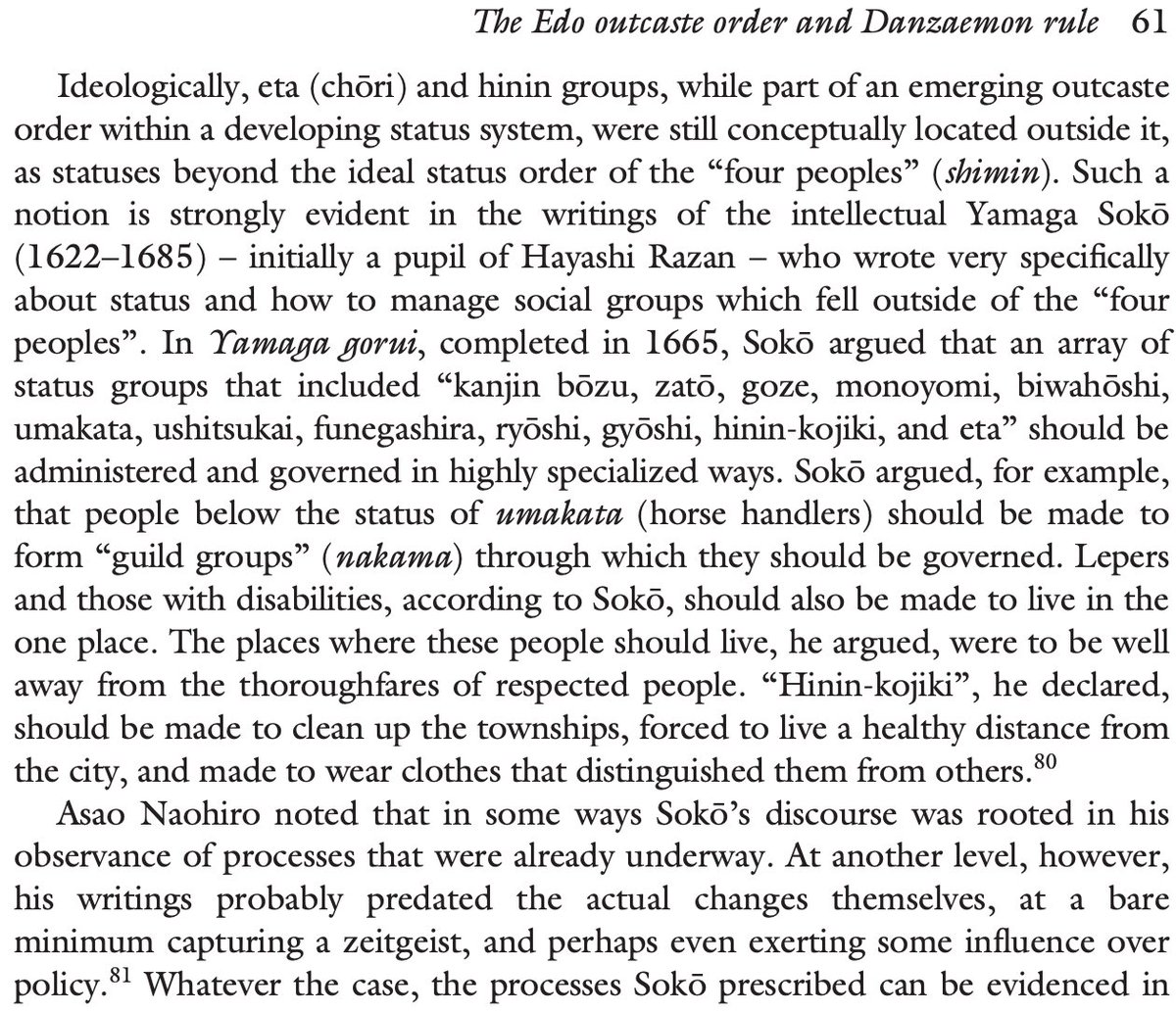

By the 1800s, thousands of households, including monkey trainers and anyone in the untouchable castes of eta and hinin. That gave him a monopoly over their trades, including leatherwork. He was a wealthy man. ("The Creation of the Edo Outcaste Order," Gerald Groemer.) 







Danzaemon also had the right to tax groups not under his direct control. He had the monkey trainers, but other classes of itinerant entertainer were also kicking up to him. ("The Economic Organization of the Outcasts of Feudal Tokyo," John A. Price.) 







Danzaemon ran his own courts, too, and could sentence his charges to death. The relationship between eta and hinin and death meant that they worked at the execution grounds and crematoria, so he also maintained a monopoly over Tokugawa crucifixions. (Caste in Early Modern Japan.) 







There was a sprawling Danzaemon mansion in Asakusa, with a community growing around it. The community was confined to the outskirts of Edo but grew in power and wealth, if not prestige. They even began contributing troops to Tokugawa campaigns. (Caste.) 

All of this officially ended in the Meiji. Danzaemon privileges were abolished. The legal existence of the classes he governed was later erased. This didn't end discrimination against Danzaemon's former charges or outcastes in other areas. It arguably made it worse. 

Early Japanese capitalism required the reproduction of feudal social relations. Discrimination continued, with weaker organization and leadership. (Japan's Outcaste Abolition: The Struggle for National Inclusion and the Making of the Modern Nation State, Noah Y. McCormack.) 





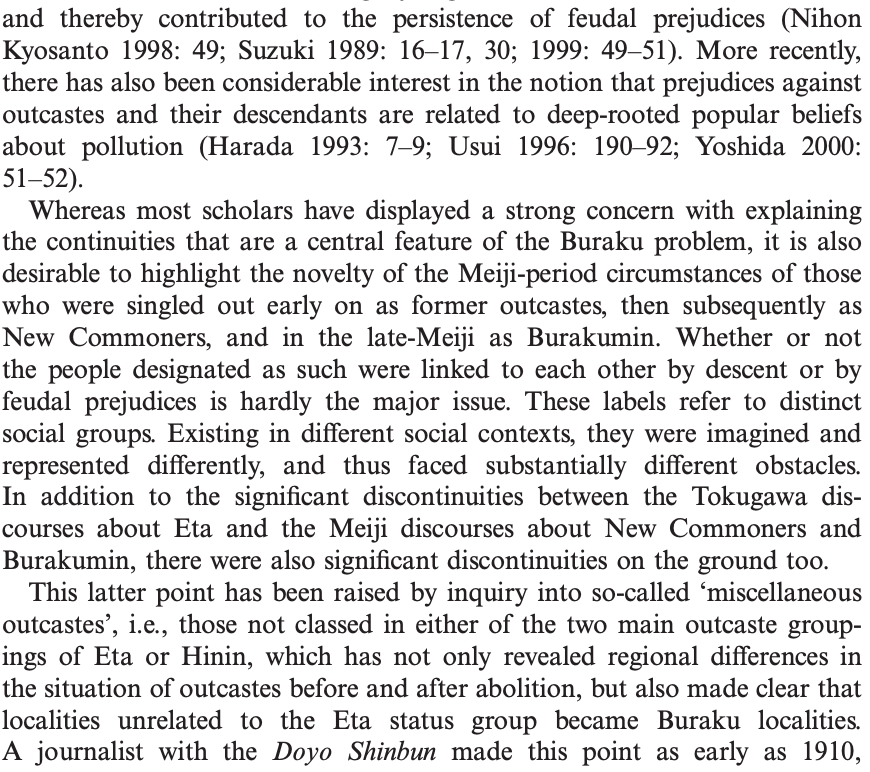

The radical and progressive outcaste liberation groups did not fit the same purpose. Their goal was equality, while Danzaemon and arguably his charges had benefited from legal inequality and the figurative and real fences around his community.
A lack of leadership also made it harder on law enforcement. Certain groups were hard to manage without a go-between. It was impossible to restrict begging without heavy-handed measures. ("Panhandling, Subsistence, and Poverty Management in Meiji Tokyo," John Porter) 



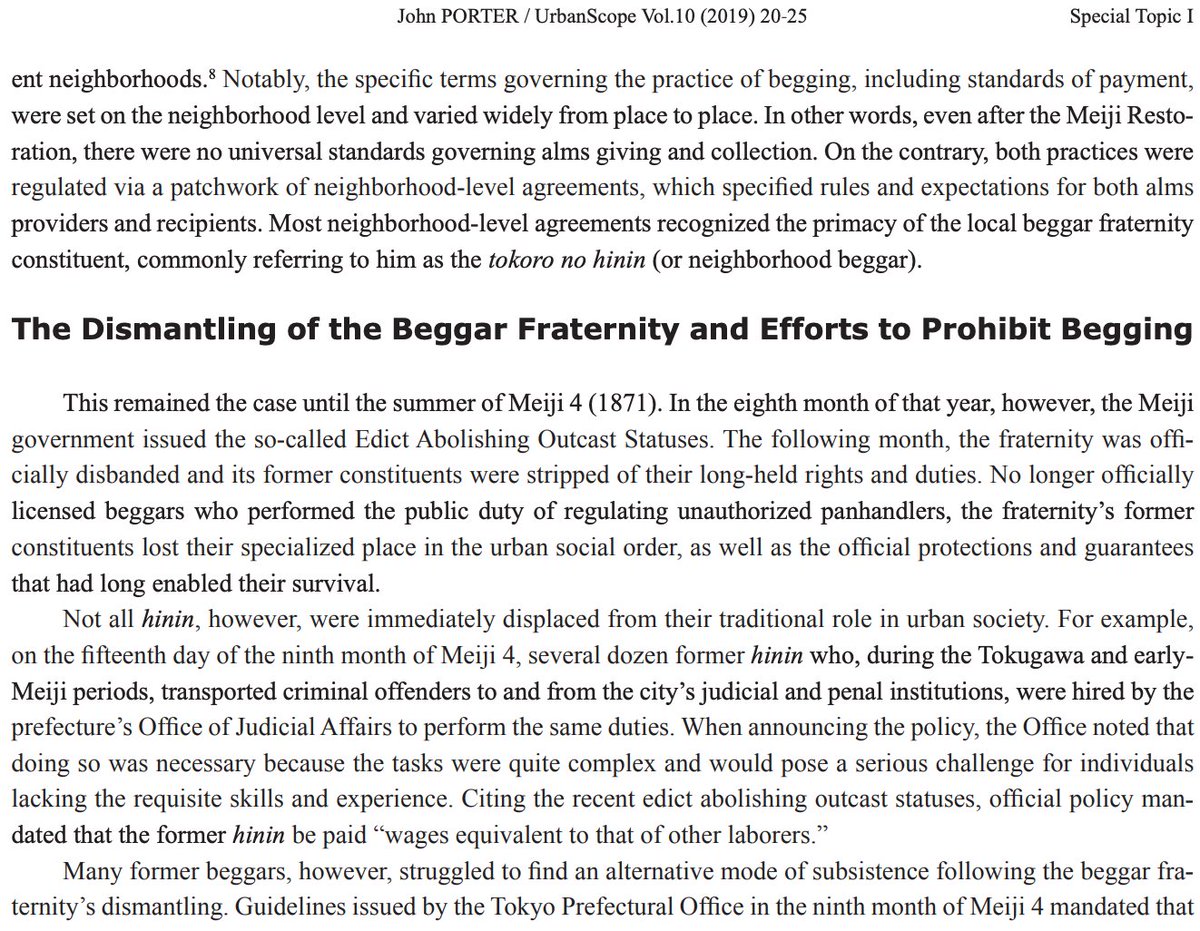



It's a similar situation with anti-organized crime laws of the 1990s: the reasonably disciplined regulators of the underworld, recognized by law enforcement, disappeared and were replaced by disorganized crime. New groups emerged that put fewer restrictions on themselves.
Unless you are willing to be heavy-handed, which is always my preference, the next best thing is for certain groups and occupations to be given some autonomy and for the authority of their leaders to be recognized, so you have someone to deal with. That's the lesson of Danzaemon.
• • •
Missing some Tweet in this thread? You can try to
force a refresh


















